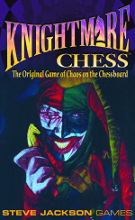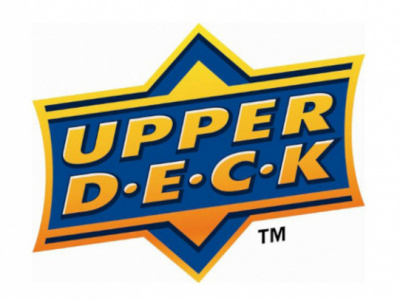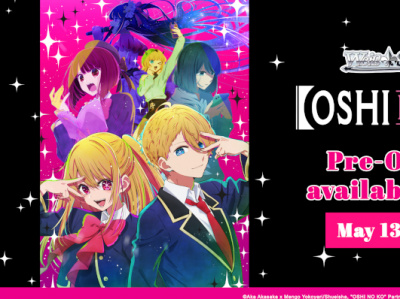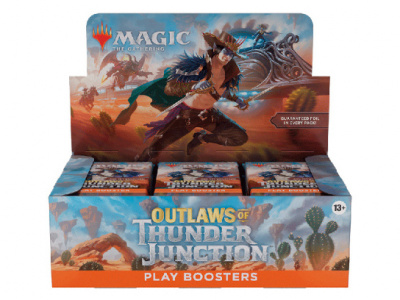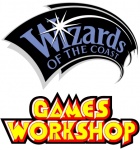 Rolling for Initiative is a weekly column by Scott Thorne, PhD, owner of Castle Perilous Games & Books in Carbondale, Illinois and instructor in marketing at Southeast Missouri State University. This week, Thorne compares the OP programs at Wizards of the Coast and Games Workshop and welcomes the return of Knightmare Chess.
Rolling for Initiative is a weekly column by Scott Thorne, PhD, owner of Castle Perilous Games & Books in Carbondale, Illinois and instructor in marketing at Southeast Missouri State University. This week, Thorne compares the OP programs at Wizards of the Coast and Games Workshop and welcomes the return of Knightmare Chess.I received a call from Wizards of the Coast's Customer Support last week regarding the changeover to paperless entry of new players to the DCI system, but no idea if it came in response to last week's column or not (see "Rolling for Initiative--The Ol' One-Two from WOTC"). I got a walkthrough for the new system, which has not actually been implemented yet, as well as help in merging my WotC customer and DCI accounts, which turned out to be a whole lot more difficult to do than I had expected, apparently mainly because I had jumped on the bandwagon early and converted over the store DCI account to the new system already.
I gather 'tis easier to convert over the customer account first, then merge your DCI account with it, rather than the other way around (and does my WotC account password really need upper and lower case letters, at least one number AND a special character? That is as secure a password as my bank requires and I certainly do not store any financial information on the Wizards website).
This got me to thinking, again, about the importance WotC places on Organized Play and comparing it to the utter lack of importance another pillar of the industry, Games Workshop, places on it.
Let us compare the two.
WotC has a very structured OP program, with stores expected, or at least encouraged, to run OP events, either provided by WotC itself (Friday Night Magic, Magic Game Days, the late Kaijudo Draft program, D&D Encounters and so forth and so on), or set up by the store (Magic, casual Magic, casual Dungeons & Dragons).
Stores can either schedule events weeks or months in advance, with promotional materials and support often provided (sometimes hundreds of dollars worth of support), or set something up on the fly, as a group of players come in and settles down for an evening of Magic or D&D. The company has made the DCI Reporter software integral to its OP program and updates the software on a regular basis. The weekly sales tips sent out from Wizards' Customer Support usually (but not always) focus on how to enhance a store’s OP program as integral to the success of Magic and, to a lesser extent, Dungeons & Dragons.
Games Workshop, on the other hand, has no Organized Play program. As a couple of my customers commented the other day, Games Workshop views its line of Warhammer products as "beer and pretzels" games. Very expensive beer and pretzel games, certainly, but still games meant for play between friends who get together for a casual afternoon, not those who get together for tournaments. Though players do actively play Warhammer and related games in tournaments, these are player-created rather than company-created events.
Games Workshop has even, as far as I know, eliminated their old "Rogue Trader" program. However, unlike WotC, I get weekly sales calls from Games Workshop and up to $1500 in credit to apply to store armies, paint stations and other GW product used to enhance game play in the store. Both companies realize the importance of in-store play, they just approach it from different viewpoints.
I would consider myself remiss if I failed to mention the release of Steve Jackson Games' Knightmare Chess as a $30 (well, $29.95) boxed set combining both sets of the original game. I am quite happy to see this as, aside from hard to find promo Munchkin cards, Knightmare Chess is the most requested out of print SJG item.
The opinions expressed in this column are solely those of the writer, and do not necessarily reflect the views of the editorial staff of ICv2.com.



